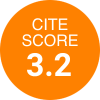fig3

Figure 3. Immune checkpoint inhibitors and myeloid-derived suppressor cells (MDSCs). Suppressive factors from the tumor microenvironment upregulate immune checkpoint receptors and enhance immunosuppression by myeloid cells while downregulating effector T cells. Blocking immune checkpoint molecules with monoclonal antibodies such as ipilimumab may enhance T cell immune response and reduce the frequency of immunosuppressive myeloid cells in cancer. It is also suggested that immune checkpoint inhibitors may also inhibit Tregs (not shown in the figure) and contribute to an overall augmentation in antitumor immune response.









